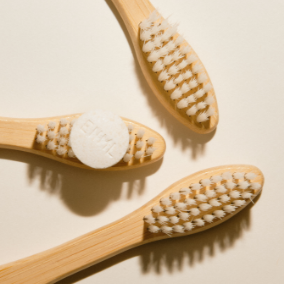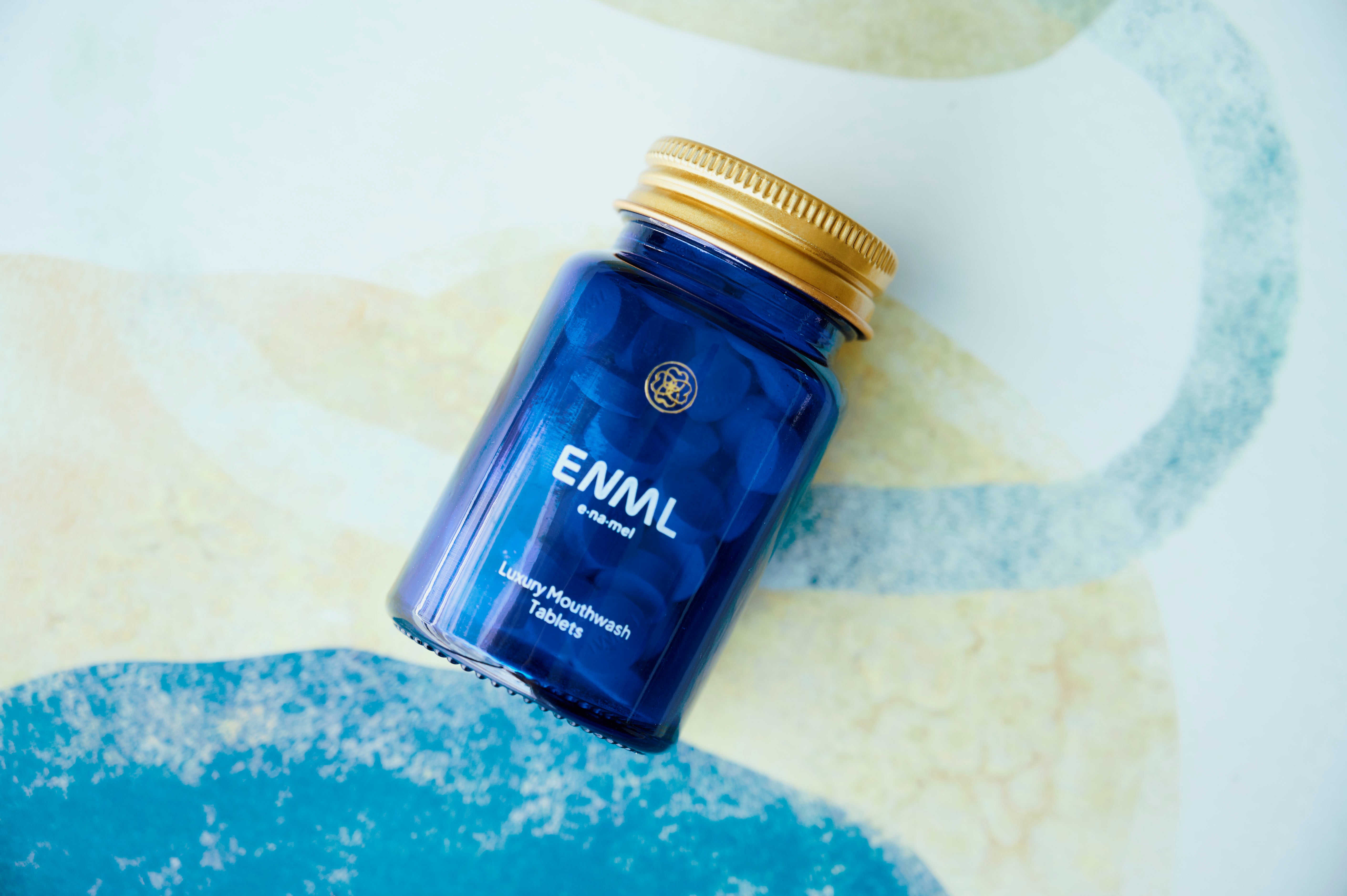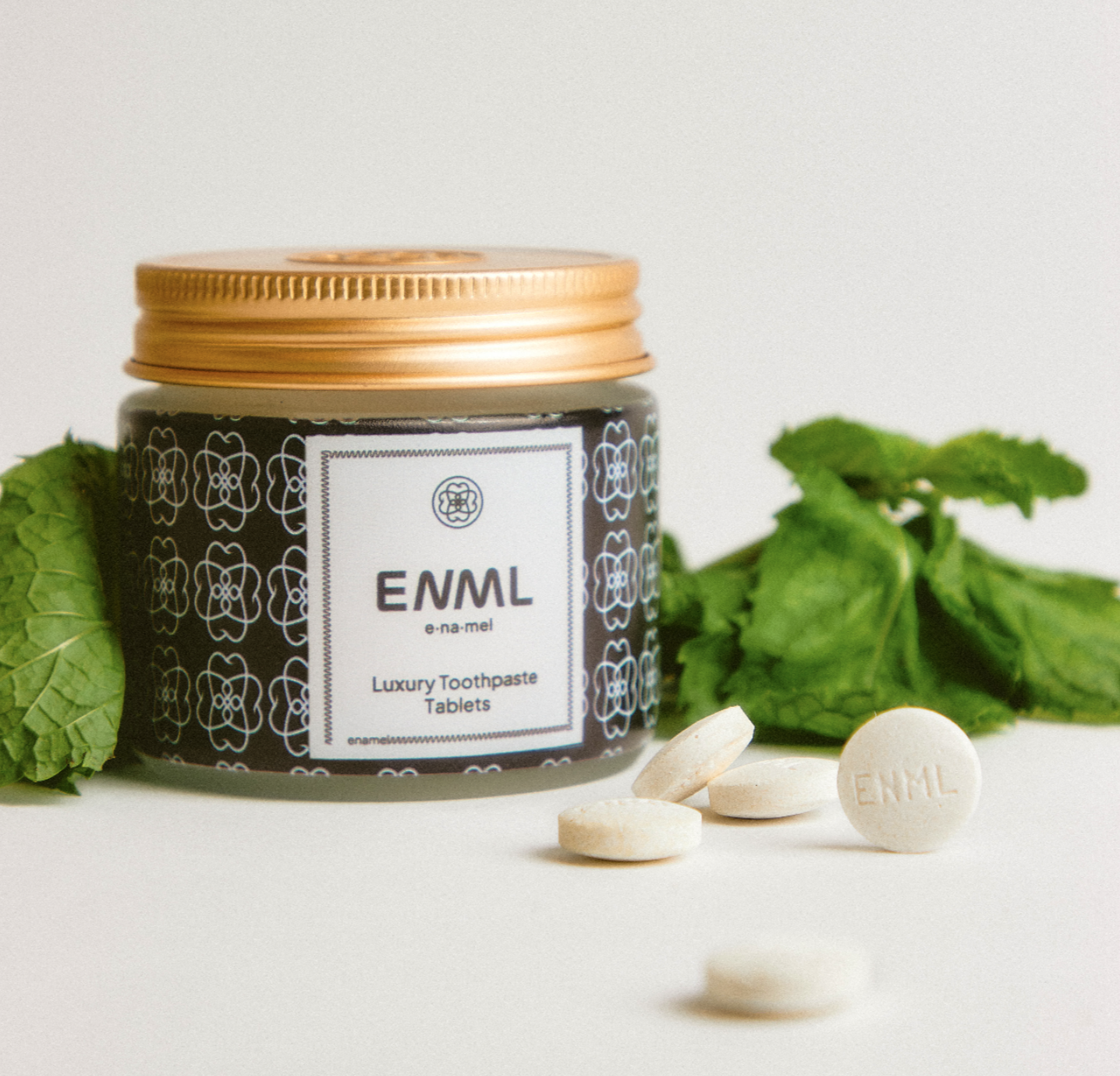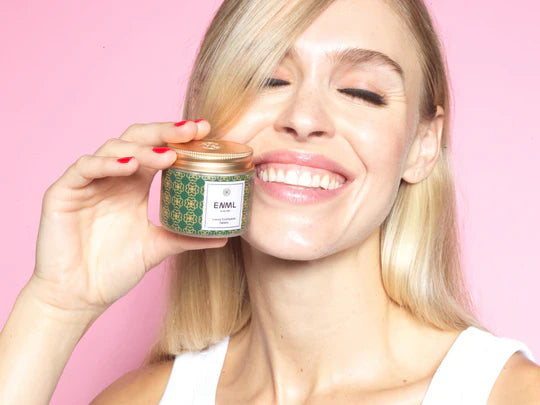At ENML, every formulation decision starts with the same question: Will this help people achieve a healthier smilel? One of the key benchmarks we use to answer that question is the Relative Dentin Abrasion (RDA) test. It is the industry‑standard way to measure how gently (or harshly) a toothpaste cleans the tooth surface.
What exactly is RDA?
RDA is a laboratory protocol established by ISO 11609 and ANSI/ADA Standard 130. It simulates brushing human dentin with a toothpaste slurry and compares the resulting microscopic wear to a calibrated reference material that is arbitrarily assigned a value of 100.
-
0 – 70: Low abrasive
-
70 – 100: Medium abrasive
-
100 – 150: Moderately high
-
150 – 250: High (upper safety limit)
-
> 250: Not permitted for commercial use
Dental professionals generally recommend staying in the low to medium range for daily use—especially if you have sensitivity, exposed roots, or use an electric brush.
Our independent test results
Therametric Technologies, an FDA‑compliant dental research laboratory in Indiana, recently completed RDA Study #25‑413 on our ENML Mint Toothpaste Tablets (Lot # 68‑TPT). Using the ADA‑prescribed V‑8 cross‑brushing machine and standardized Oral‑B P40 brushes, eight dentin specimens were brushed for 1,500 strokes each.
Mean RDA: 37.05 ± 0.95
(N = 8 specimens; all individual scores fell between 32.87 and 40.54)
An RDA of 37 firmly places our tablets in the “ultra‑low abrasive” category—roughly half the abrasivity of many so‑called “sensitive” pastes and a fraction of the limit set by the ADA and ISO (≤ 250).
Why low abrasivity matters
-
Preserves enamel & dentin – Tooth structure does not regenerate. A gentler paste means less cumulative wear over decades of brushing.
-
Ideal for sensitivity & whitening routines – Low‑abrasive products pair well with professional whitening or remineralising agents such as micro‑hydroxyapatite.
-
Safer for electric brushes – Power brushes already increase the mechanical action; combining them with a harsh paste can accelerate enamel loss.
How we kept the RDA low without sacrificing cleaning power
-
Micro‑Crystalline Hydroxyapatite
Our signature active deposits the same mineral your teeth are made of, filling micro‑defects and smoothing the surface instead of scratching it. -
Balanced Particle Size
We mill our natural polishing agents to an optimal micron size—small enough to lift plaque, too large to scour enamel. -
Waterless Tablet Format
Eliminating 40 %+ water found in traditional pastes lets us reduce abrasive fillers and replace them with functional actives. -
No Silica Overload
Many whitening formulas rely on high‑levels of hydrated silica for “grit.” We keep silica minimal and supplement with gentle calcium‑based polishers.
What this means for your daily routine
| Concern | Typical Advice | ENML Benefit |
|---|---|---|
| Tooth Sensitivity | Use a low‑abrasive paste to avoid exposing dentin tubules | RDA 37; fortified with hydroxyapatite to seal tubules |
| Enamel Erosion | Limit acid & mechanical wear | Ultra‑low abrasivity plus pH‑balancing ingredients |
| Stain Removal | Harsher pastes may remove stains but scratch enamel | Optimized polishing agents lift stains while protecting enamel |
| Sustainability | Reduce plastic tubes & shipping water | Compact, refillable glass vial; water‑free tablets |
Frequently asked questions
Is a lower RDA always better?
Below the ISO/ADA limit of 250, lower is generally gentler. However, the formula must still remove plaque biofilm effectively. Our tablets undergo separate in‑vitro cleaning efficacy tests to ensure they meet plaque‑removal standards even at RDA 37.
Can children use ENML tablets?
Yes. The mild abrasivity is especially suitable for kids’ developing enamel. Because our formula is fluoride‑free, supervise brushing to ensure they do not swallow excess product.
How often should I brush?
Dentists recommend twice daily for two minutes. Pair our tablets with soft‑bristle or electric brushes and replace brush heads every 3 months.
The bottom line
An RDA of 37 confirms that ENML Toothpaste Tablets clean effectively without compromising the integrity of your enamel or dentin. Few premium pastes—even many “sensitive” options—score this low. Combine that gentleness with our remineralizing micro‑hydroxyapatite, plastic‑free packaging, and naturally fresh mint flavor, and you have a routine that’s better for you and the planet.
Ready to experience ultra‑low‑abrasive, science‑backed oral care?
→ Shop ENML Mint Toothpaste Tablets now
For professional inquiries or to request the full laboratory report, please contact info@enml.com.




